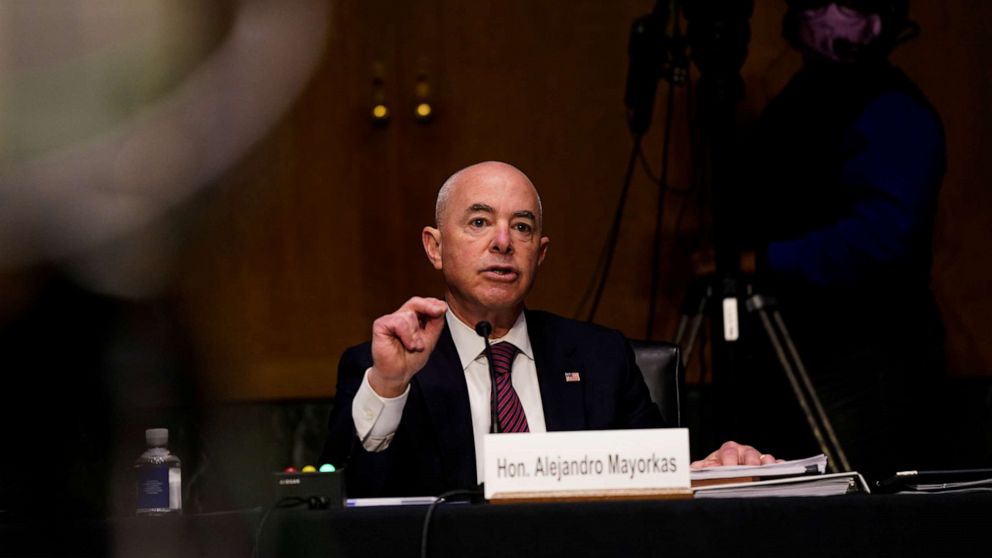US rolls out changes to 'Remain in Mexico' policy pending Mexico agreement
The United States rolled out its changes to carry out the “remain in Mexico" policy, also known as the Migrant Protection Protocol (MPP), on Thursday, pending agreement from the Mexican government.
The Trump administration policy, which has been the subject of scrutiny from advocates, forces asylum seekers along the border to wait in Mexico while their claims are being processed.
The Biden Administration had previously attempted to end the policy, but the court would not allow it, citing the way they ended it was procedurally not legal. In addition, part of re-implementing the MPP hinged on cooperation from Mexico.
On a call with reporters on Thursday, U.S. officials anticipate the changes they made to the program “will satisfy Mexico’s demands,” and they “anticipate that Mexico will announce an agreement to begin MPP soon after that announcement.”
Officials expect the policy to be implemented on Monday, starting with one port along the border and “rapidly expanding” to all ports along the southwest border. However, officials could not say which port because the logistics were still being worked out.
In its ruling in August, the court ordered the Department of Homeland Security to “enforce and implement MPP in good faith” until certain conditions are satisfied, including that MPP be “lawfully rescinded in compliance with the APA.”
Some of the changes to the policy include an expansion of “vulnerable individuals” that are exempted from MPP. They will be looked at on a “case by case basis.”
They will include “those with physical and mental health challenges, the elderly and those at risk of discrimination, particularly because of their gender orientation or sexual identity on a case by case basis,” one senior U.S. official said.
U.S. Customs and Border Protection agents will also be asking if asylum seekers have a fear of returning to their home country. Previously, people who wanted to claim asylum had to claim fear of returning to their home country proactively.
Another change that officials stressed was significant to Mexico, was to expedite asylum cases in under 180 days.
Currently, there is an immigration backlog of over 1.3 million cases. So, in order to satisfy Mexico’s requirement, the Department of Justice Executive Office for Immigration Review (EOIR) court will put 22 judges specifically on MPP asylum cases, officials said.
The four ports where MPP cases will be heard will be San Diego, El Paso, Texas, Laredo, Texas and Brownsville, Texas.
All enrollees in MPP will have access to COVID-19 vaccines, given to them in Border Patrol stations by CBP personnel.
Specifically, adults will be offered the one-dose Johnson and Johnson vaccine, and children will be offered the Pfizer vaccine.
They are also working with Mexican authorities to properly allow access to counsel, through secure phone lines, while waiting in Mexico.
Administration officials expect and are hopeful that lawyers will step up to represent MPP enrollees.
However, Title 42 is still being enacted and deportations are being carried out due to the public health emergency order, officials stressed.
In October, the DHS said it would make another attempt to terminate the plan, according to a memo from Secretary Alejandro Mayorkas. Officials on the call reiterated that plan.




